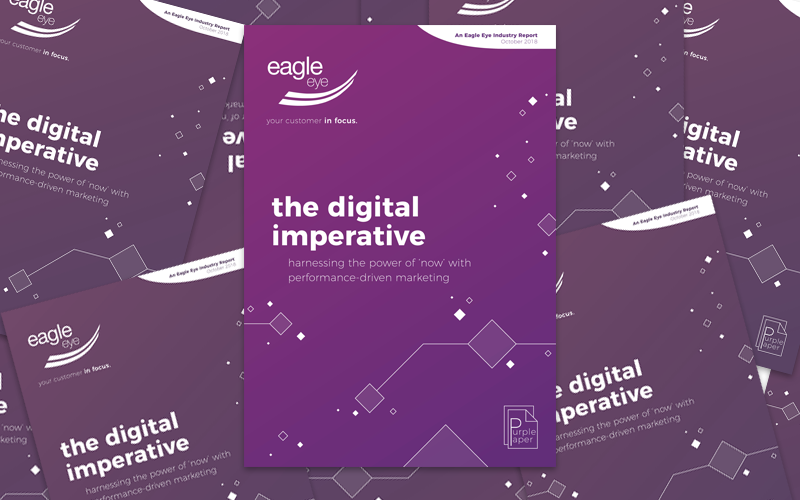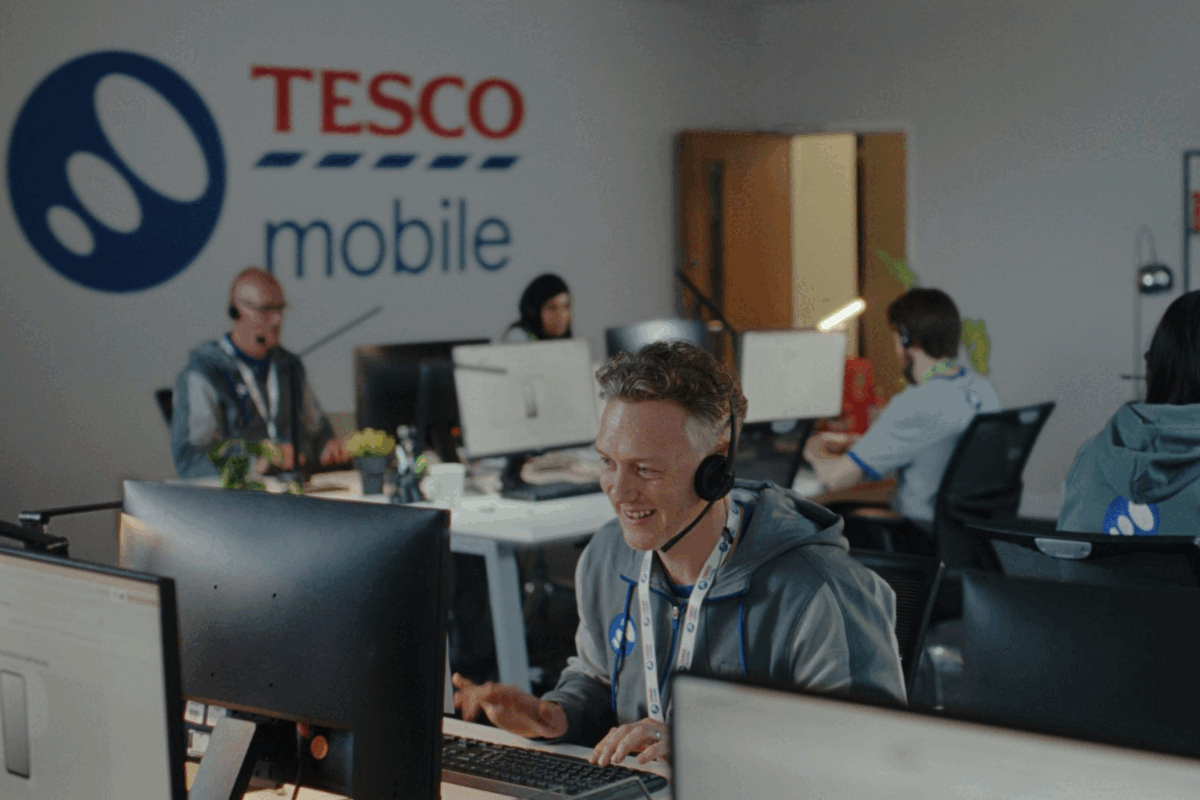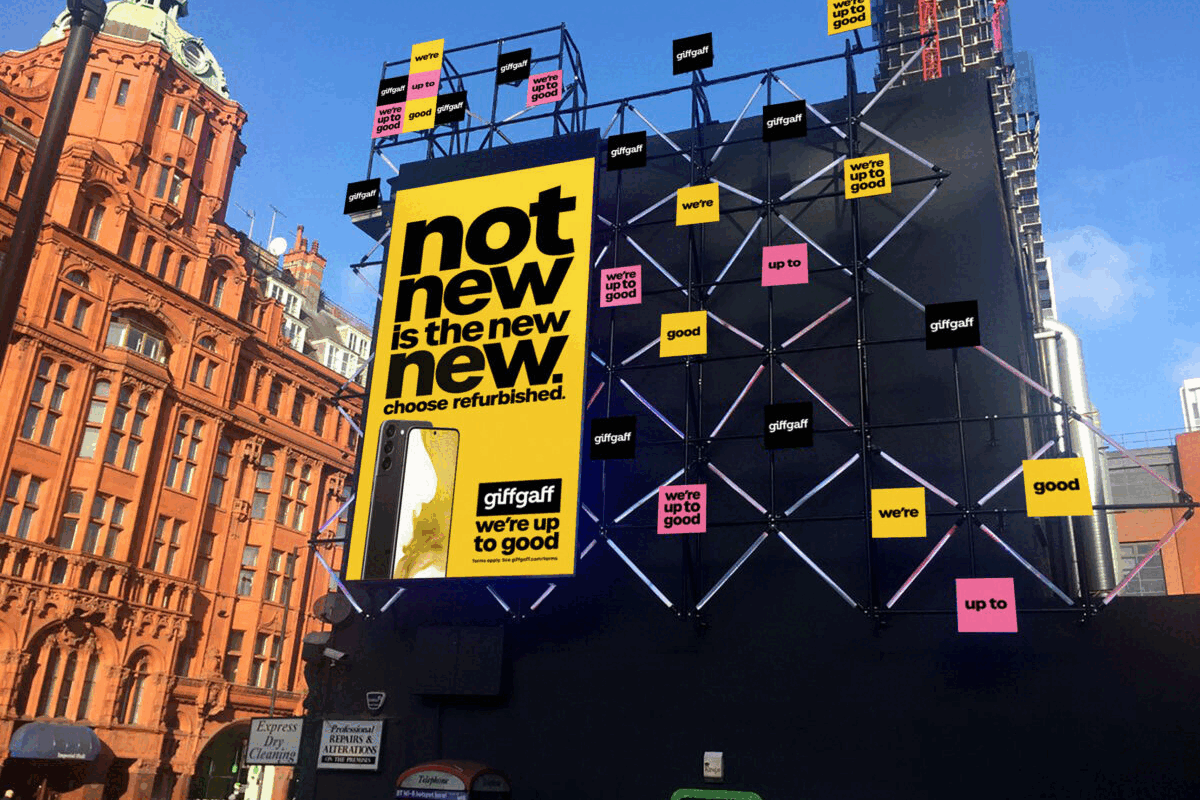Eagle Eye: Retailers need to understand the give-to-get mentality
- Monday, January 21st, 2019
- Share this article:

Eagle Eye, a SaaS platform that provides customer loyalty schemes and digital reward platforms, has released The Digital Imperative, which details the current trends and insights into performance-driven marketing. Through Eagle Eye’s custom software, Eagle Eye AIR, the platform offers digital services such as customer loyalty programs and staff loyalty rewards. Within The Digital Imperative, Eagle Eye analysts outline the importance of using such programs to connect and retain engaging customer relationships.
“It is imperative for retailers to develop a digital connection with customers because so much customer shopping and activity is carried out digitally,” says Miya Knights, head of industry insight for Eagle Eye. “I think retailers are very aware of that fact that if they are online only or physical brick-and-mortar stores only, they’re only seeing a small part of their customers total shopping journey.”
For the study, Eagle Eye surveyed more than 4,000 America, Australian, British and Canadian consumers, to fully understand the impact of customer engagement through digital channels.
Four key findings emerged from the study: retailers and brands must establish a digital connection with customers for a personalized shopping journey; online shoppers prefer email, mobile and online code or coupon offers and promotions; consumers expect marketing engagement to be relevant; and consumers are realizing now more than ever that they may opt out of marketing engagement.
“If you don’t have full end-to-end visibility of your customer, including preferences and journeys, how can you tailor to meet them? How can you keep pace with the digitally and technologically savvy customers who know how to work the system?” says Knights. “Consumers are already there, they’re already two or three steps ahead of retailers. Unless you have a digital connection with customers, you can’t track that yourself.”
Eagle Eye says it offers companies a more efficient way of tracking customer data that can then be used to personalize the rewards, promotions, and coupons sent back to returning buyers. Knights emphasizes the need for retailers to understand the give-to-get mentality. If a consumer shares their shopping history, searches and other data with a retailer, the consumer wants to get more relevant and personalized digital promotions in return.
According to the report, 31 per cent of consumers agree if a brand or retailer offers a loyalty scheme or some other type of reward, it has ‘a lot of influence’ on their decision to buy from them. Additionally, 94 per cent of consumers say relevancy’ is the most important factor in deciding to redeem an offer or promotion.
“Consumers understand that if I, as a consumer, give the retailer some of my data, I expect something qualitatively better back. Whether that’s thanking me as a regular customer, whether that’s giving me exclusive access to something,” says Knights. “I am giving you something that an anonymous customer does not give you. Therefore, I am worth more to you as a customer, and you need to make me aware of that.”
According to The Digital Imperative, 32 per cent of consumers have opted out of email marketing and promotions in the last six months. Knights says this may have happened for a number of reasons, including lack of reward relevance. If a consumer is being constantly spammed with promotions that have nothing to do with previous purchases or actual interests, the customer will opt out of data sharing. 32 per cent of shoppers in the US, 28 per cent in the UK, and 34 per cent in Canada and Australia, said they had opted out of email marketing and promotions from their most used brands within the last six months.
“That give-to-get dynamic has really come home to roost. It’s really top of mind in North American consumers, and as a result, they realize the value of their own data” says Knights. “If you can’t bother to get to know me, I’m not going let you have my data.”
Another reason opt outs are increasing in America may be because of security and privacy concerns, especially considering recent data sharing between Facebook and Cambridge Analytica, explains Knights. In addition, Facebook, Google and Android executives have also had to testify before Congress in the past year, regarding the illegal collection and tracking of consumer data and location. These concerns are most prevalent in the US and Canada, as Europe has the stricter GDPR regulations.
“I think it was really evident through our research that the dial shifted in the US, not so much in Canada and not at all in the UK and Australia. And that to me is as direct of a correlation as you can get between Americans seeing their data misused by Facebook and pulling back on opting in to marketing campaigns,” says Knights.
Still, loyalty schemes are becoming more and more popular with both consumers and retailers. Nearly two-thirds of consumers polled had collected or used loyalty scheme points, discounts coupons and/or vouchers within two weeks of taking Eagle Eye’s survey. Knights emphasizes the importance of utilizing these SaaS platforms like Eagle Eye to optimize marketing spend and maximize return on investment.
“By digitizing the delivery of coupons, vouchers, rewards and loyalty points, you eliminate fraud,” says Knights. “You are also able to tie that digital cookie back to an interaction or sale, and attribute marketing spend to that code or promotion. As opposed to saying I spent XYZ dollars and I made XYZ sales, but I don’t quite know how many of those coupons ended up driving those sales.”
“Our issuance-to-redemption coupon platform allows you to, in a very fine way, manage that, and as a result, create digital connections to customers that can lead to lasting meaningful relationships where you’re giving them more of what they want. You’re getting more of their data and feeding that back in to your marketing engine in an interactive way to develop more tailored, effective campaigns,” Knights concludes.
You can read the full report here.
















